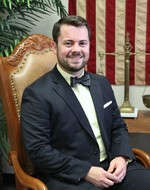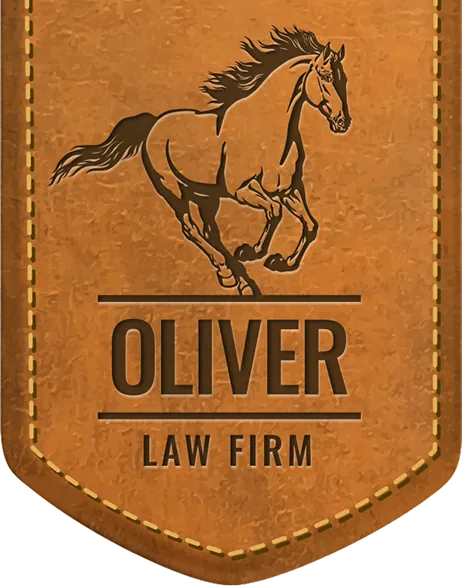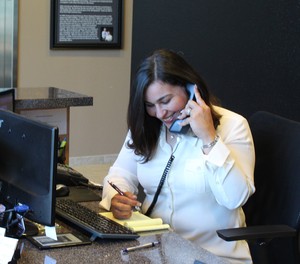
Why Most Legal Practices Don’t Work and What to Do About It.
When I first picked up The E-Myth Attorney I read the subtitle, “Why Most Legal Practices Don’t Work and What to Do About It,” and thought to myself that it may be something I was interested in. As soon as I got into the book, I realized that it didn’t directly relate to the point in life that I’m at, but I decided to keep reading. I’m very glad I did.
The E-Myth Attorney is a spin-off of the book The E-Myth targeted at general businesses. It is a book for entrepreneur-attorneys who own and operate their own firm. Obviously, I do not own or operate the firm, but it has great tips and life lessons for anyone with the entrepreneurial spirit or anyone interested in making our Oliver Law Firm Firm better than it already is. To start, the “E-Myth” stands for the “Entrepreneurial Myth” which says that most “entrepreneurs” who start businesses aren’t entrepreneurs at all, but “technicians suffering from an entrepreneurial seizure.” In order to become true entrepreneurs, we have to change the way we work and think.
Specifically with regard to attorneys, the overriding theme of this book is developing a turnkey system that will turn a legal “practice” into a legal “business.” A legal practice is simply a lawyer representing people. A legal business is a method of doing things that can plug capable people into different positions and run with or without that particular attorney. Until that happens, there is little to no equity built into a legal practice and little to no value for an attorney to eventually be able to make a profitable “exit” from the company when they retire. The #1 model used in the book for the “system” that needs to be created is McDonald’s. Every single aspect of their business is put in print and compiled into an easy-to-use manual that is consistent from place to place. A McDonald’s burger in California is more or less the same as a McDonald’s burger in New York. With a legal business, everything from answering the phones, to greeting clients, to initial filings in cases all should have some sort of “system” that is used to guarantee consistent results regardless of turnover in employees.
Another key theme in the book is the importance of working smart instead just working hard or working long hours. The opening chapter is a story about an attorney who poured his life into his practice, neglected his family, neglected himself, and ended up in a miserable place; all in the pursuit of money and success. The importance of living a balanced life is carried throughout the book. Towards the end, there are a few chapters with tips about how to be more efficient with your time and how to properly delegate what can be delegated. But one chapter stuck out particularly to me where it discussed how the old adage “time is money” is completely wrong. Time isn’t money, Time is life. We are only given so much Time (capital T) to spend on this earth and it’s important that we use it the best way we can. The argument presented in this book, and one with which I agree, is that having a positive impact on those around you and leaving the world a better place is probably more important that simply making money. Obviously, it does NOT advocate laziness or give an excuse for not working to ensure a stable life for your family, but re-thinking the way we look at Time kind of puts other things in proper perspective.
Application:
While reading The E-Myth Attorney, two things really jumped out to me. First, the system we have been putting in place lines up almost directly with what this book advocates, and I love it. From the CAT team’s organizational system that is on the laminated sheets, to the “Oliver Law Firm, how may I direct your call?” phone answering instructions, we really are developing a system. There are clearly great people in place in this system right now, but as our firm develops and grows, our system will continue to improve and continue to guarantee great results for our clients, regardless of who is in the system.
Second, was the realization that even as an employee, this is my firm and this is our firm. At this stage in my career, my primary financial concern has been my own income. Paying mortgages, paying student loans, and all of the mess that comes with being recently-graduated has been my only real concern. But, all the employees who only receive “income” from the firm need to try to change the way of thinking where our primary concern is increasing the “profit” and “flow” of money for the firm. If we focus on the financial health of the firm, then personal income, and likely more of it than before, will come in time. In order for any individual in the firm to be successful, the whole firm has to be successful. We have always had great comradery and a great team atmosphere, but truly taking personal ownership of the B&O firm, in the way we approach our jobs and our lives, could take that to a whole new level.
Conclusion:
This book wasn’t targeted for people in my station of life, but people like me, and anyone else, can really benefit from reading it. Law firms are businesses… and that’s not a bad thing. In order to ever succeed and be able to help our clients, we have to approach the firm like a business, continue to develop our system, and take personal ownership of the results the system produces. The E-Myth Attorney has helped me understand how to do all of that better.
“If you don’t know where you’re going, you’ll probably end up somewhere else.” – Yogi Berra (p. 121 of the book).
NOTE: Oliver Law Firm has a reading program and an office library full of many great books. Our mission is to inspire, train, and mentor our work family to improve ourselves and client services.
Oliver Law Firm, 3606 W. Southern Hills Blvd., Rogers, AR 72758.
a Free Consultation



